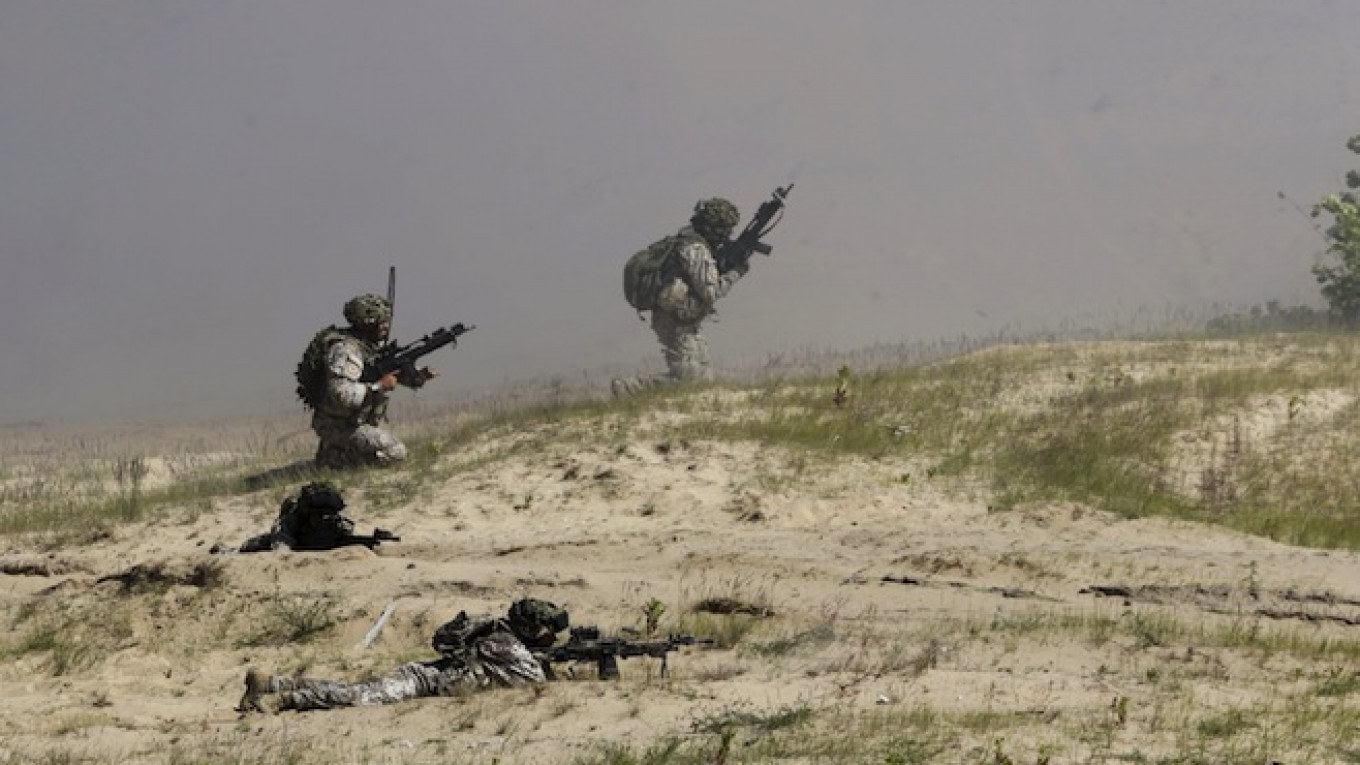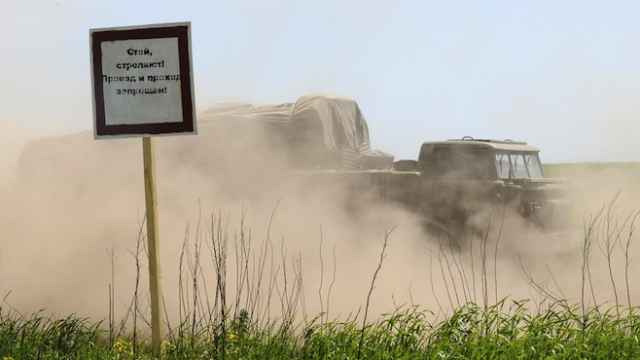SYDNEY — Russia's nuclear "saber rattling" and refusal to abide by the terms of a cease-fire in Ukraine have dragged East-West relations to their lowest level since the 1962 Cuban missile crisis, Latvian Foreign Minister Edgars Rinkevics said Thursday.
This week Russia announced it was adding 40 new intercontinental ballistic missiles to its nuclear arsenal, placing further strain on relations between Moscow and the West, already tense over the Ukraine crisis.
Rinkevics, who has a lead role in EU diplomacy, said in an interview in Sydney that Russian statements about its willingness to use nuclear weapons were alarming.
"I think that what we are witnessing is unprecedented since 1962, since the Cuban missile crisis," he said.
The West says it has evidence that Moscow is supporting pro-Russian rebels with troops and weapons in eastern Ukraine, where more than 6,000 people have been killed since April last year.
Moscow's repeated denials have not lessened tensions, with increased Russian military activity and exercises, including in the Baltic region.
U.S. officials said over the weekend that the United States planned to store heavy military equipment in the Baltic states and eastern European nations to reassure allies unnerved by Russia's intervention in Ukraine and to deter further aggression.
On Thursday, however, a top U.S. commander told Reuters that Washington had not yet decided whether to store some of that additional equipment in eastern Europe.
Latvia and its neighbors Estonia and Lithuania were all part of the Soviet Union until 1991 and are now members of the European Union. They are wary about Russia and have watched with alarm as ties have frayed over the Ukraine crisis.
Rinkevics told Reuters that Moscow's nuclear rhetoric demonstrated the need for more NATO troops and equipment in the region, and that the military alliance must "be prepared for all kinds of contingencies."
"It shows that we have to be really prepared to respond as NATO to such kinds of threats through more troops, more military equipment in the Baltic States, in Poland," he said.
On Wednesday, EU governments agreed to extend economic sanctions on Russia until Jan. 31, maintaining Western unity despite the reservations that some EU members openly expressed.
A four-month-old cease-fire brokered by Ukraine, Russia, Germany and France in Minsk has stemmed large-scale fighting but deadly skirmishes still occur almost daily.
Rinkevics said that violations of the peace deal had forced the extension of sanctions, and warned that escalating tensions there risked spiraling out of control.
"We cannot say that the Minsk agreement is totally broken, but what we have seen recently is that the level of tension is increasing," Rinkevics said.
"We are in a situation where the Minsk agreement can be broken anytime and in that case we are going to see a totally different situation, which is not going to be better."
A Message from The Moscow Times:
Dear readers,
We are facing unprecedented challenges. Russia's Prosecutor General's Office has designated The Moscow Times as an "undesirable" organization, criminalizing our work and putting our staff at risk of prosecution. This follows our earlier unjust labeling as a "foreign agent."
These actions are direct attempts to silence independent journalism in Russia. The authorities claim our work "discredits the decisions of the Russian leadership." We see things differently: we strive to provide accurate, unbiased reporting on Russia.
We, the journalists of The Moscow Times, refuse to be silenced. But to continue our work, we need your help.
Your support, no matter how small, makes a world of difference. If you can, please support us monthly starting from just $2. It's quick to set up, and every contribution makes a significant impact.
By supporting The Moscow Times, you're defending open, independent journalism in the face of repression. Thank you for standing with us.
Remind me later.






